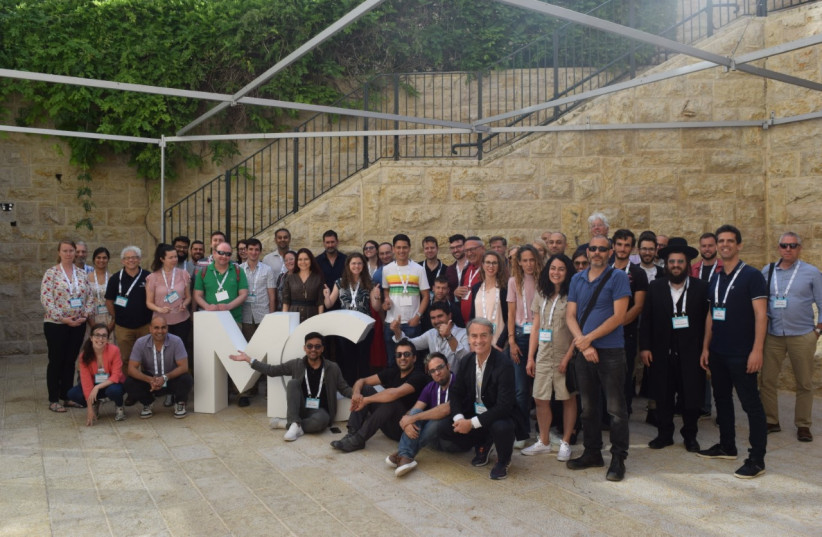Fifty-one Israeli and international start-ups - nearly a third from the food tech, alternative protein, energy and clean tech sectors - were selected to join the 2023 MassChallenge Israel Early-Stage Accelerator, the organization announced on Sunday.
The companies were picked out of more than 350 applicants from over 15 countries by a team of local and international experts representing more than 20 Israeli and global organizations, including JPMorgan Chase, Google, Intel, Microsoft, Cisco, Verizon Ventures and IBM.
"The selection committee is made up of people with expertise in our focus industries, who understand the technology and the problems that the world is facing," MassChallenge Executive Director Aaron Zucker told The Jerusalem Post.
"MassChallenge emerged in response to the financial crisis of 2008. We have grown and evolved such that MassChallenge Israel is positioned to support founders as they face the current challenging economic markets and the lingering impact of the pandemic," he continued. "Today more than ever, early-stage start-ups must focus on building strong business fundamentals to allow these ventures to create a positive impact where it truly matters."
The program focuses on establishing quality mentorships, helping companies improve their marketing and providing access to networking opportunities with MassChallenge's global network of partners and investors from the private and public sectors.

The 2023 MassChallenge cohort includes start-ups from Argentina, Brazil, Colombia, India, Israel, Nigeria, Spain, the United Kingdom and the United States. More than a third (35%) are led by female leaders or have a female co-founder.
The start-ups come from a range of industries: 28% "general" - aerospace, agriculture, entertainment, travel/tourism; 30% healthcare and life sciences; 15% hi-tech - cyber, e-commerce, ed-tech and fin-tech; 15% food-tech and alternative protein; and 12% energy and clean tech.
MassChallenge is again offering the "Better Plate Track" in partnership with the Modern Agriculture Foundation, which supports companies looking to bring alternative protein technologies to market.
In addition, for the first time, sustainable foods and health start-ups will be invited to join post-accelerator programming at MassChallenge in Switzerland (food-tech) and the US (health).
The Arc Impact foundation decided this year to invest in climate technology start-ups through MassChallenge, explained founding and managing partner Nicky Newfield.
"More and more companies are looking to help to solve or mitigate climate change," she told the Post. "The idea is that this climate cohort will come in and have access to world payers, to corporate and other business models that often incorporate carbon credit, and they will become engaged in a worldwide network that works with climate change."
Global warming is happening
Newfield explained that the Earth is warming, and temperature increases need to stay under 1.5 degrees for humanity to survive.
"What happens is the gases in the atmosphere are increasing the Earth's temperature, and those gases we are admitting need to stop being emitted or at least reduced," Newfield said. "In climate tech, when we are talking about investing in technology that helps with climate change, we are talking about investing in technology that will mitigate the amount of gas in Earth's atmosphere."
"In climate tech, when we are talking about investing in technology that helps with climate change"
Nicky Newfield
She added that as climate patterns change, humans must adapt to live the way they want under extreme water patterns and droughts. As such, she said that her foundation is also looking for technologies that can help on that front.
"In Israel, we have almost 700 or 800 start-ups solving for these aspects of climate change, whether it is alternative energy sources, carbon sequestration or looking at food security because as climate patterns change, food security becomes a problem," Newfield added.
Among the climate tech companies selected are askBelynda, a US start-up on a mission to reduce carbon footprint and promote sustainability by shifting consumer spending to environmentally friendly and ethical products.
Israeli companies, such as BeAir, BioShade, DairyX, GreenEggs and Plantell, were also picked. BeAir specializes in atmospheric water generation; BioShade has developed an autonomous, green infrastructure that increases vegetation cover at scale; DairyX is creating animal-free and clean-label dairy products; GreenEggs is making plant-based eggs; and Plantell uses genetically encoded biosensors for early stress detection in crops.
Other highlights include India's Canvaloop Fibre, which works to transform agricultural waste into sustainable textile biomaterials. There is also the UK's Clearly Earth, which developed a software solution to help fleet operators to identify, price and fund decarbonization projects. Brazil's Quiron Digitalcan maps land and deforestation and analyzes forest health.
"In Israel, our climate footprint is small because we are a small country," Newfield said. "But the impact we can have on the world with our technology is gigantic. Here, it is not about reducing our carbon footprint, but developing technologies and innovation that can be implemented to help with the world climate cries."
The early-stage accelerator program runs from April to July 2023. Zucker said the program is hybrid, including virtual learning and in-person meetings at MassChallenge's Jerusalem headquarters.
At the program's conclusion, MassChallenge Israel will select 10 prize winners to travel to Boston and New York on an all-expenses-paid business trip, where they can meet with and pitch to key players in the United States.
The organization said its 330 MassChallenge Israel alumni have collectively raised over $1.2 billion and created more than 17,000 direct and indirect jobs globally.
"It is tough to raise money and get customers today," Zucker concluded. "These companies will need all the support they can get."
